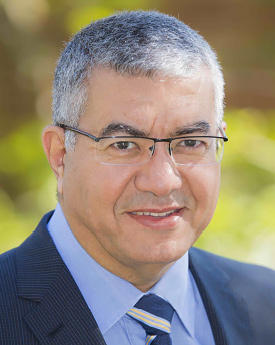Keynotes - Sumi Helal

Microservice Ecosystem for Digital Health in Integrated Care Settings
Friday July 12, 10:15 - 11:30
Location: Aula Magna, Universita' degli Studi di Milano
Presentation slides
Digital Health promises measurable improvements in the quality of personalized care, positive changes in health outcomes, and efficiency gains in the care delivery system. This is especially the case in integrated care settings such as integrated health and social services, integrated primary and specialist care, integrated physical and mental health, and integrated service care with self-care. Microservices promise to enable additional powerful integrations notably integrating human health expertise with machine health expertise (leveraging IoT and AI), and integrating professional health services with crowdsourced community-delivered services (unleashing the “Uber of digital health”). In this talk, I will present a microservices architecture for digital health in the domain of active and healthy aging and chronic disease management. I will particularly demonstrate how microservices can integrate Health IoT devices into clinical care pathways. I will then show how microservices may empower communities economically and promote a shift of outcome-based efficient delivery of care through a new operational and financial model giving rise to a new and “healthy” digital health economy. I will conclude by analyzing some of the key challenges that need to be addressed before the full potential of this new ecosystem can be realized.
Brief Biography
Sumi Helal, PhD, is professor and Chair in Digital Health at Lancaster University, UK, where he leads interdisciplinary research initiatives in digital health in both the School of Computing and Communications (Faculty of Science and Technology) and the Division of Health Research (Faculty of Health and Medicine). As Director of Lancaster University’s Center on Digital Health and Quality of Life Technologies, he leads several active projects on Connected Health Cities, Healthy New Towns design and implementation, suicide prevention using cybernetics and analytics, Airport Accessibility for the hearing impaired, and intelligent primary care GP-Patient interactions. He is a board member and lead of the digital health infrastructure and strategies in the Fylde Whyndyke Garden Village - one of ten NHS England Healthy New Towns development project (a 1400-unit, green grass development which provides for a unique opportunity to embed health elements, by design, in public areas, neighborhoods, and the town community hub (school, wellness center and health care facility), to promote health and wellbeing, active and healthy living and ageing, prevent illnesses and improve people's quality of life.
Before joining Lancaster, Sumi was a Computer & Information Science and Engineering Professor at the University of Florida, USA, and Director of its Mobile and Pervasive Computing Laboratory. He co-founded and directed the Gator Tech Smart House, a real-world deployment project that aimed at identifying key barriers and opportunities to make the Smart Home concept a common place (creating the "Smart Home in a Box" concept). His active areas of research focus on architectural and programmability aspects of the Internet of Things, and on pervasive/ubiquitous systems and their human-centric applications with special focus on smart spaces, proactive health/wellness, patient empowerment and e-coaching, and assistive technology in support of personal health, aging, disabilities, and independence. Professor Helal served as the Editor-in-Chief of IEEE Computer (2015-2018), the Computer Society's flagship and premier publication. He currently serves as member of the Board of Governors of the IEEE Computer Society, and Chair of its Magazine Operational Committee. Professor Helal is a Boilermaker (Ph.D., Purdue University, class of 1991) and a Fellow of the IEEE.